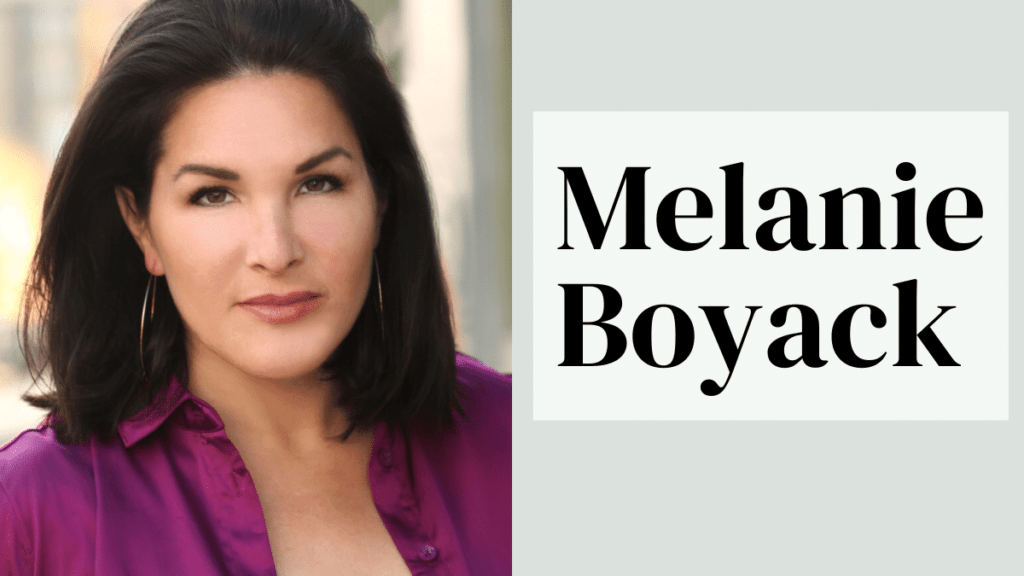In the dynamic world of public speaking, there’s a transformative force that goes beyond polished rhetoric and rehearsed presentations. It’s the power of vulnerability— the art of sharing one’s authentic self with an audience. Melanie Boyack, a Keynote and Corporate Trainer based in Utah, advocates for embracing vulnerability as a critical tool in building trust, fostering connection, and delivering presentations that leave a lasting impact.
Unveiling the Keynote Maven:
Melanie Boyack, with her extensive experience as a Keynote and Corporate Trainer, has witnessed firsthand the impact vulnerability can have on an audience. She begins by underscoring the importance of weaving personal stories into presentations. “It’s not just about delivering information; it’s about connecting with the audience on a human level. Vulnerability is the bridge that leads to genuine connection,” she emphasizes.
Building Trust Through Authenticity:
In a world inundated with information, audiences crave authenticity. Melanie Boyack believes that authenticity begins with vulnerability. “When you share your struggles, failures, and triumphs, you invite your audience into a space of authenticity. People connect with real stories, not just polished narratives,” she explains. Building trust is the foundation of any meaningful connection, and vulnerability is the cornerstone.
Creating Impactful Presentations:
Many speakers focus on perfecting their delivery techniques, overlooking the power of storytelling and vulnerability. Melanie Boyack challenges this approach. “Impactful presentations go beyond eloquent words and captivating visuals. They tap into the shared human experience. Vulnerability makes your message relatable, memorable, and resonant,” she asserts. By incorporating personal anecdotes and revealing the person behind the podium, speakers can create presentations that linger in the hearts and minds of their audience.
The Courage to Own Your Story:
Owning one’s story, with all its imperfections and vulnerabilities, requires courage. Melanie Boyack acknowledges this challenge but highlights its transformative potential. “When you own your story, you take control of the narrative. You become the author of your experiences, and that empowerment translates to your audience,” she says. The courage to be vulnerable enhances personal growth and inspires others to embrace their authenticity.
Overcoming the Fear of Judgment:
One of the primary barriers to vulnerability is the fear of judgment. Melanie Boyack addresses this fear head-on, advocating for a mindset shift. “Judgment is a natural part of the human experience, but it shouldn’t dictate how we share our stories. By acknowledging our fears and vulnerabilities, we disarm judgment and pave the way for genuine connection,” she advises. Overcoming the fear of judgment is a liberating step toward authentic communication.
Connecting on a Human Level:
In the digital age, where screens often mediate our interactions, Melanie Boyack emphasizes the importance of human connection. “Vulnerability is the antidote to the isolation that can accompany modern communication. It reminds us that, beneath the surface, we share common struggles, joys, and emotions,” she says. Speakers bridge the gap between the stage and the audience by infusing vulnerability into presentations, fostering a sense of shared humanity.
Practical Tips for Embracing Vulnerability:
Melanie Boyack shares practical tips for speakers looking to integrate vulnerability into their presentations:
- Start Small: Share a personal anecdote or reflection related to your topic. Gradually increase the level of vulnerability as you become more comfortable.
- Authenticity Over Perfection: Focus on being authentic rather than perfect. Audiences connect with realness, imperfections, and genuine emotion.
- Connect Emotionally: Identify the emotional core of your message and communicate it authentically. Emotion is a powerful catalyst for connection.
- Learn from Others: Study speakers who effectively incorporate vulnerability into their presentations. Analyze what works and adapt it to your style.
Conclusion:
Melanie Boyack’s journey as a Keynote and Corporate Trainer is a testament to the transformative power of vulnerability in public speaking. As she continues to inspire others to embrace their authenticity, she leaves a trail of speakers who understand that the true power of a presentation lies not just in the words spoken but in the vulnerability shared. By weaving the threads of personal stories into the fabric of presentations, speakers can create an experience that transcends information, fostering connections that resonate on a deeper, more human level. The power of vulnerability is not just a speaking technique; it’s a philosophy that can change how we communicate and connect.

